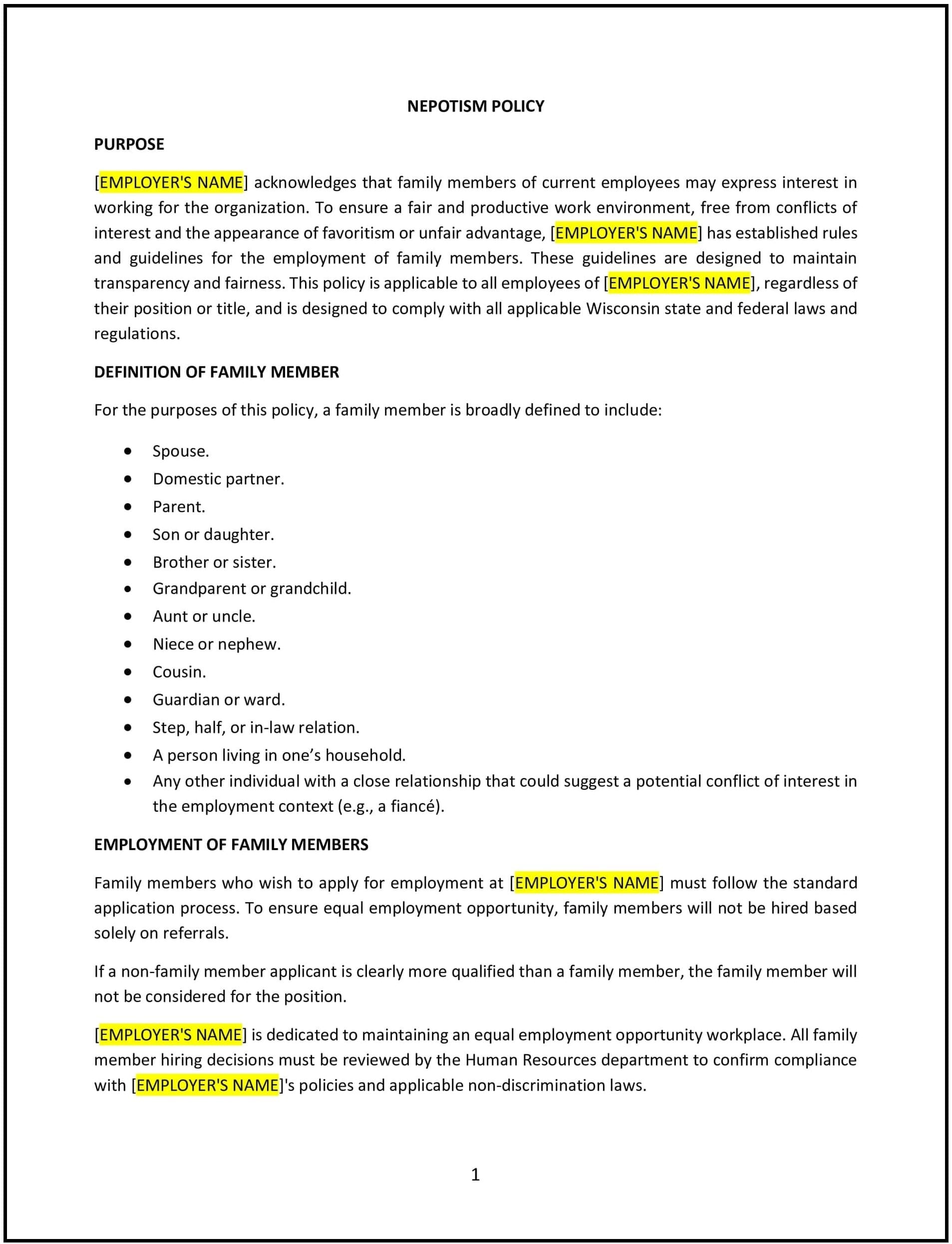Got contracts to review? While you're here for policies, let Cobrief make contract review effortless—start your free review now.

Customize this template for free
Nepotism policy (Wisconsin)
A nepotism policy helps Wisconsin businesses ensure fairness and transparency in hiring, promoting, and managing family relationships in the workplace. This policy outlines the company's stance on employing family members, including guidelines for handling potential conflicts of interest, favoritism, or perception of bias.
By implementing this policy, businesses can maintain a professional and impartial workplace environment while mitigating potential legal risks and promoting equal opportunity.
How to use this nepotism policy (Wisconsin)
- Define nepotism: Clearly describe what constitutes nepotism, such as hiring, promoting, or favoring family members in a way that may create a conflict of interest or affect objectivity in decision-making.
- Set hiring and promotion guidelines: Establish rules regarding the employment of family members, such as prohibiting the hiring or promotion of relatives into positions where they would report directly to one another.
- Address conflicts of interest: Include procedures for managing any potential conflicts of interest, such as disclosure of family relationships in the workplace and reassignment of duties or reporting structures to avoid favoritism.
- Ensure transparency: Promote transparency in the hiring and promotion process by requiring written documentation of the decision-making rationale and ensuring that family relationships are disclosed upfront.
- Enforce compliance: Outline consequences for violating the policy, which may include disciplinary action or reassignment of responsibilities to prevent conflicts of interest.
Benefits of using this nepotism policy (Wisconsin)
This policy offers several benefits for Wisconsin businesses:
- Promotes fairness: Helps prevent favoritism or biased decision-making in hiring, promotions, and other workplace matters, fostering a more equitable work environment.
- Reduces legal risks: Minimizes the potential for discrimination claims or employee dissatisfaction related to perceived favoritism.
- Enhances workplace morale: Ensures employees feel that career advancement and opportunities are based on merit rather than personal relationships.
- Strengthens company reputation: Demonstrates the company’s commitment to transparency, professionalism, and equal opportunity.
- Maintains operational integrity: Prevents conflicts of interest that may disrupt team dynamics or undermine management authority.
Tips for using this nepotism policy (Wisconsin)
- Communicate the policy clearly: Ensure that all employees understand the guidelines regarding family relationships in the workplace and the procedures for disclosing such relationships.
- Review family relationships regularly: Encourage employees to disclose any new family relationships that could impact workplace decisions or responsibilities.
- Enforce the policy consistently: Apply the policy fairly across the organization to ensure equal treatment for all employees and minimize the risk of perceived favoritism.
- Provide training: Educate managers and HR personnel on how to handle family relationships appropriately and how to ensure objective decision-making.
- Update periodically: Review and revise the policy as necessary to reflect changes in Wisconsin laws or company practices.